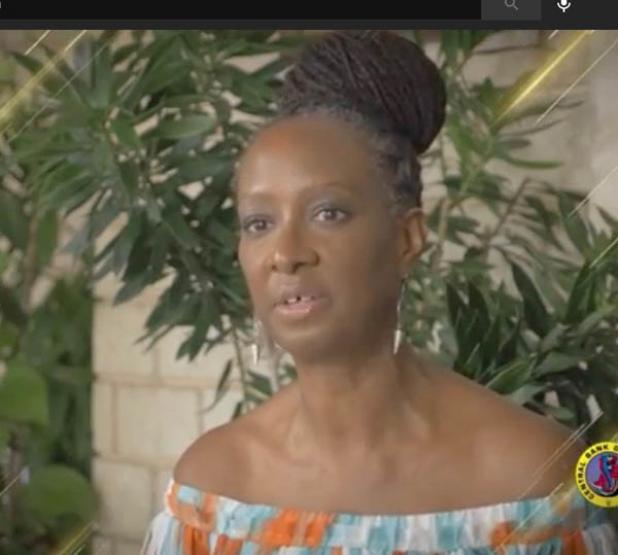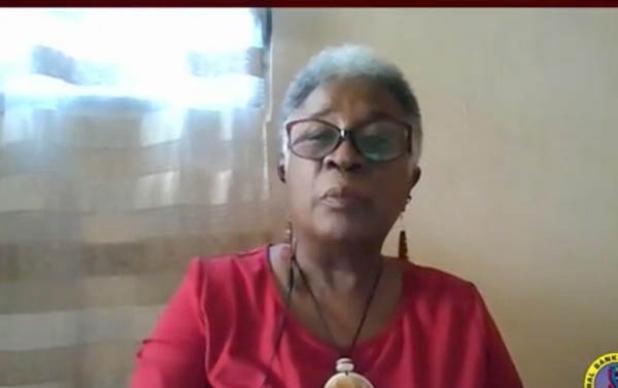
Author Linda M. Deane took away the top prize on the night.

The keynote speech was delivered by Haitian writer, Évelyne Trouillot.
Literature powerful
Authors across the Caribbean have been called on to recognise and realise their potential as regional works come from a place of power. This from celebrated Haitian writer Évelyne Trouillot as she delivered the keynote address on Sunday night during the 23rd Annual Frank Collymore Literary Endowment.
With the awards being held virtually, Trouillot noted that there were many themes portrayed in fictional works from the region that were linked to history shared throughout the Caribbean. Highlighting ‘Silencing the Past: Power and the Production of History’, a work by Michel-Rolph Trouillot, she stated that he argued that narratives produce what we call history through the choice of sources, the creation of archives, the facts that are told versus the ones that are silenced and that each historical narrative is a fictional story but with the power to shape, not only our view of the past, but to explain our present and to depict our future.
“In the Caribbean we are subject to the perception of history as produced by the dominant European view. We have to work hard to transcend this perception and see each other from our own perspectives. For me, this is when and where literature plays a significant role. Fiction can give voice to people who are otherwise misinterpreted, misrepresented or simply forgotten by textbook writers. Women’s role and contribution, for example, is often ignored. But fiction can give life to the forgotten fiction at its most powerful can move the invisible out of the shadows. In that sense, fiction can fill the gaps left by historical narratives,” she said.
Going on to say that there were many writers from the region that would never be discovered because they are not recognised by the editorial powers which reside in London, Paris and Madrid, Trouillot said that the time had come for us to celebrate our own.
“Too often, the Western capitals get to decide which writers are major Caribbean writers according to their own views of the Caribbean, their own vision of our realities. It is time, I think, to bypass the intermediaries. It is time to communicate directly from one island to another between us writers and poets and artists, to learn from each other, to exchange and create more. We need more national events like this one here in Barbados. We need more local and regional awards to recognise and value our peers.”
Noting that there was a need for creatives from the Caribbean to rise above the barriers of language and geography, she added that the time had come for us to work together.
“We from the Caribbean, from this region born from a complex mixture of language and cultural elements, we seem to have the ability to evolve in difficult conditions. We have managed to brilliantly delve into and reflect on our history. To evoke painful but necessary subjects. To bring new life to our realities. To go beyond the cliche that surrounds our islands. To use our creativity and intelligence to give life to beautiful poetry and fiction that talks to the world from our spot in the world. It is time for us to strengthen the ties between us,” she said.
On the night, second place went to Carlyon Blackman for her work ‘All Oppression is Connected’ and Jacinth Howard for ‘The Mother Island’. Zoanne Evans snatched up the Prime Minister’s Prize for her novel ‘Tameisha’s Lesson’ while the first prize winner was Linda M. Deane for her collection of poems titled ‘An Ocean Away, My Mother Smiling: Tales of Migration and Memory’. (MP)
